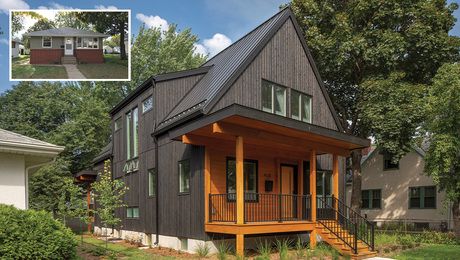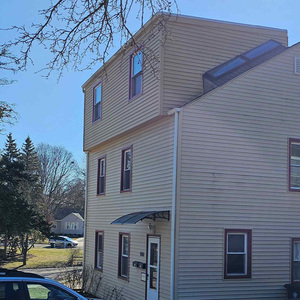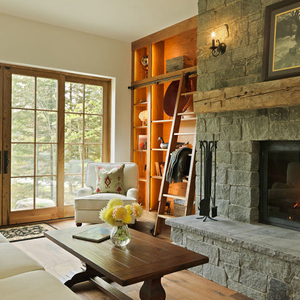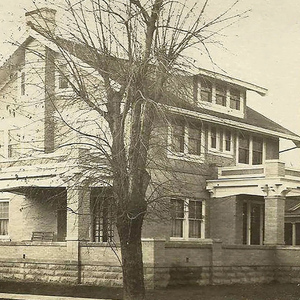*
I would like to know if I can safely use my Hitachi EC 12, 14.5 amps air compressor with a 100 foot 12 gauge extension chord.
Discussion Forum
Discussion Forum
Up Next
Video Shorts
Featured Story

A small and dated house lends its foundation to a stylish new home with more than twice the space.
Featured Video
How to Install Exterior Window TrimHighlights
"I have learned so much thanks to the searchable articles on the FHB website. I can confidently say that I expect to be a life-long subscriber." - M.K.
Fine Homebuilding Magazine
- Home Group
- Antique Trader
- Arts & Crafts Homes
- Bank Note Reporter
- Cabin Life
- Cuisine at Home
- Fine Gardening
- Fine Woodworking
- Green Building Advisor
- Garden Gate
- Horticulture
- Keep Craft Alive
- Log Home Living
- Military Trader/Vehicles
- Numismatic News
- Numismaster
- Old Cars Weekly
- Old House Journal
- Period Homes
- Popular Woodworking
- Script
- ShopNotes
- Sports Collectors Digest
- Threads
- Timber Home Living
- Traditional Building
- Woodsmith
- World Coin News
- Writer's Digest


















Replies
*
Bob,
I'm not familiar with the gauge. Our cable is rated in Amps. A standard cable of that length is 10 amps. I run a compressor of same size on a 300' cable but had to get a 15 amp cable to carry the load.
*If I remember right the NEC allows up to 20 amps on a 12 gauge wire however it is de-rated by a certain percentage if it is over a certain length. I bet you will be ok. Usually the darn thing wont start properly or a breaker will throw if the cord is too small.
*Get a hundred foot hose. It is best never to try to run a comprssor on an extension cord.
*
My understaning from the guy I bought my compressor from is that 25 feet is the max for 12 gauge wire.
He said most of his work is from compressors that are run with insufficent power.
As someone suggested to one of my post "air hose is cheap" around here $9 for 60 feet of 3/8 inch. You could neck the 3/8 down to 1/4 inch.
*
Using 12 guage at 14.5Amps and 100 foot, you will drop around 6%. This is just over the recommended limit of 5%. I'd recommend a 10Ga cable.
BTW, check out http://www.mikeholt.com/free/voltagedrop.htm for a quick on-line calculator.
*I calc a 5 volt drop in 100 feet of 12 gauge and would suggest that as a limit on cord length of 12 gauge at that amperage. Shorter is better. Or a thicker extension cord. The problem with running the motor on a long extension cord is that motors pull more amps and run hotter when given low voltage. Also consider that the length of Romex in the wall and the use of other appliances will drop the voltage further. You can always check what the operating voltage is. Just put a 2-way or 3-way plug at the compressor end of the cord and measure the voltage while it's running. 110V would be good, but sometimes people are running them at 100 or 90 volts. It's always better to use air hose than extension hose. -David
*Marc:Are you using 240 volts @ 50 Hz down under?Others:It is the starting current that will produce the largest voltage drop. When the compressor starts the second time ( with head pressure) the starting load will be even greater than the initial empty tank start. This is usually when windings burn up and breakers trip. Air hose is much better than extention cords. Borrow a 100 foot 12 ga cord and try it. You will proably see, hear and feel the difference. If not, you can use it.Frank
*David;Whoops. Don't know how i boogered that. It is just around 5% at 14.5A.I concur with others, and your post in that other operating features (compressor preload and ambient temp) can increase the draw, and lead to problems.
*I've got two burned up compressors to prove what the others are saying. I bought a continuos run model to solve the problem. Blue
*
I would like to know if I can safely use my Hitachi EC 12, 14.5 amps air compressor with a 100 foot 12 gauge extension chord.